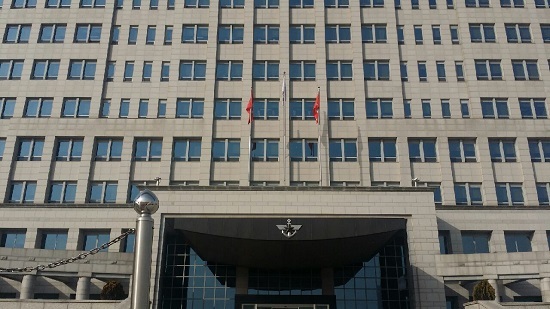Dozens of classic snack foods, from Doritos and Cheerios to Oreos and Fritos, may contain traces of glyphosate -- the active ingredient in Monsanto's RoundUp herbicide.
A new study by Food Democracy Now! found that 29 treats tested in a lab showed levels of glyphosate between 8.02 and 1,123.5 parts per billion.
Should this worry consumers?
SEE ALSO:'Erin Brockovich' chemical found in more than 200 million Americans' tap waterFood Democracy Now! and bloggers like FoodBabe will tell you yes, drop those Cool Ranch Doritos immediately, because they could give you cancer.
But outside experts say the findings are no cause for alarm and stoke more fear than scientific understanding.
 GMO corn and Monsanto's Roundup herbicide are placed in front of Bayer France's headquarters in Lyon to protest the merger of Bayer and Monsanto, Oct. 14, 2016.Credit: KONRAD K./SIPA via ap images
GMO corn and Monsanto's Roundup herbicide are placed in front of Bayer France's headquarters in Lyon to protest the merger of Bayer and Monsanto, Oct. 14, 2016.Credit: KONRAD K./SIPA via ap images"None of these [results] strike me as particularly worrisome," said David Eastmond, a toxicologist at the University of California, Riverside, who chairs the school's cell biology and neuroscience department.
Counting your Cheerios
Glyphosate is the world's most widely used herbicide in agriculture and gardening. Several global scientific agencies have found the chemical is unlikely to cause cancer in people exposed to it through food.
Food Democracy Now!, a non-governmental organization, enlisted Anresco Laboratories to carry out the study. The food safety testing lab is registered with the U.S. Food and Drug Administration.
 Glyphosate food testing results, in parts per billion (ppb).Credit: Food democracy now!
Glyphosate food testing results, in parts per billion (ppb).Credit: Food democracy now!Researchers found original Cheerios had the highest level of glyphosate compared to other foods tested, at about 1,123.5 parts per billion -- or 1.125 milligrams of glyphosate per 1 kilogram of cereal.
Say you weighed 50 kilograms, or 110 pounds, and ate a kilogram of Cheerios. That means you would ingest about 0.022 milligrams of glyphosate per kilogram of body weight.
That would be ok, since the U.N. agency estimates show you could ingest between 0 and 1 milligrams per kilogram of body weight every day, over a lifetime, with no substantial risk to your health.
Via GiphyTo hit that daily upper limit, a 110-pound person would have to eat about 45.5 kilograms of Cheerios per day. That's equal to nearly 130 boxes of 12.5-ounce Cheerios every day, over the course of years.
On their own, those numbers seem meaningless. Who will realistically eat that much cereal in 24 hours, and do so day after day?
However, since most people regularly eat a range of cereals and snack foods, their total exposure to glyphosate may be higher than results for a single item suggest. And the less you weigh, the more glyphosate you consume relative to your body weight, so toddlers munching on Cheerios have much higher exposure.
 A PepsiCo vending machine is packed with processed foods.Credit: PepsiCo via AP Images
A PepsiCo vending machine is packed with processed foods.Credit: PepsiCo via AP ImagesStill, the results are "nothing to be alarmed by," Eastmond told Mashable.
While he didn't dismiss the study outright, he said its conclusions are far from certain. The research must be replicated, scrutinized and tested in various settings before scientists can determine whether residue on snack foods is actually a health threat.
An unlikely cancer risk
In May, two United Nations agencies, the Food and Agriculture Organization and the World Health Organization, concluded that glyphosate is unlikely to cause cancer in people via their diets.
The joint safety assessment looked at the chemical's cancer risk -- that is, whether it could cause cancer or damage cells in real-life conditions and at current levels. The agencies assessed about 20 studies in rats, and found there was no convincing evidence of cancer. Studies on mice did suggest some evidence of cancer, but at doses so high they were not considered relevant to human exposure.
The EU-backed European Food Safety Authority last fall similarly found that glyphosate is unlikely to be carcinogenic in humans.
 A farmer in Bunceton, Missouri holds up Roundup-resistant soybeans at his family farm, July 5, 2008.Credit: AP Photo/Dan Gill
A farmer in Bunceton, Missouri holds up Roundup-resistant soybeans at his family farm, July 5, 2008.Credit: AP Photo/Dan GillFood safety advocates say they aren't convinced.
In its report, Food Democracy Now! said glyphosate is "unsafe on any plate" and pointed to rodent studies that other agencies found were not proof of a cancer risk.
A recent finding by the International Agency for Research on Cancer (IARC) has further confused the public.
The agency, part of the World Health Organization, found in 2015 that glyphosate may pose a cancer "hazard," meaning that at some unknown, possibly very high level, glyphosate could potentially cause cancer in humans.
Other scientists have disputed IARC's approach, given that hazards do not reflect real-world conditions.
 Monsanto's Roundup is stocked at a store in Frederick, Maryland, March 28, 2015.Credit: AP Photo/Jon Elswick
Monsanto's Roundup is stocked at a store in Frederick, Maryland, March 28, 2015.Credit: AP Photo/Jon ElswickRobert Tarone, a biostatistician formerly with the U.S. National Cancer Institute and the International Epidemiology Institute, said the IARC's cancer finding was the result of a "flawed and incomplete summary of the experimental evidence" from animal studies, according to his May paper in the European Journal of Cancer Prevention.
But the public is clearly still worried.
Blog posts featured on FoodBabe and the Huffington Post about the report earned enough attention this week to prompt Monsanto to issue a rare response on its Facebook page. The U.S. agrochemical giant called the report a "scare tactic."
Tarone, the retired biostatistician, agreed that studies making wholesale claims on limited evidence produce more confusion than proof.
"The average person has no idea how to interpret the exposure levels," he told Mashable.
"It stokes fear."
Featured Video For You
7 benefits of matcha: Why everyone's talking about this green tea powder








